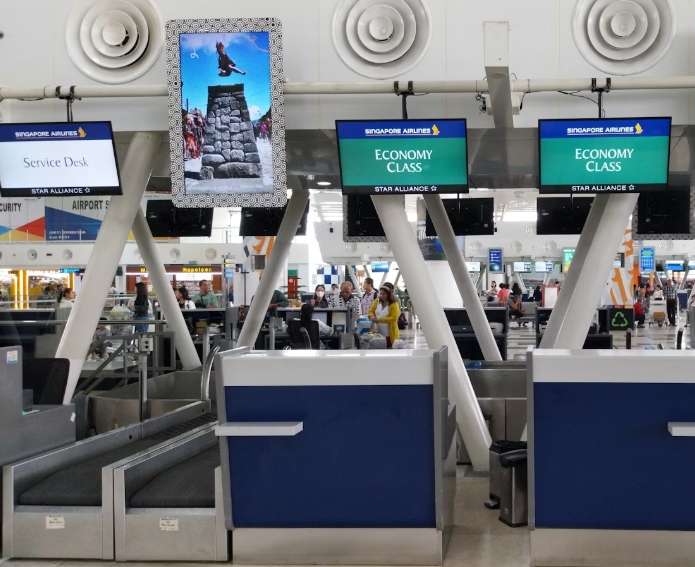Guyanese Aviation Authority Confirms AI’s Permanent Role in Airport Technology
The aviation industry is on the cusp of a transformative era, driven by the rapid advancements and integration of artificial intelligence (AI). This technology promises to revolutionize air travel, enhancing passenger experiences, optimizing airline operations, and bolstering safety measures. Guyana, a developing nation in South America, is embracing this technological shift, recognizing the potential of AI to modernize its aviation sector and propel its growth. Leading this charge is Lieutenant Colonel (Ret’d) Egbert Field, Director General of the Guyana Civil Aviation Authority (GCAA), who has championed the adoption of AI in Guyana’s airspace.
Field’s advocacy for AI stems from a deep understanding of its potential benefits. He envisions AI as a catalyst for improvements across various facets of aviation, from streamlining passenger processing to enhancing flight efficiency and safety. At the Global Implementation Support Symposium 2025 in the UAE, Field emphasized the transformative power of AI, highlighting its ability to reshape the aviation landscape. He acknowledged the disparity in technological adoption between developed and developing nations, emphasizing the need for bridging this gap to ensure equitable access to the benefits of AI. Field underscored the importance of strategic partnerships and knowledge sharing to facilitate the implementation of AI in developing countries like Guyana.
Guyana’s proactive approach to AI integration is evident in its collaborative efforts with international partners and the implementation of AI-driven systems. The GCAA is actively engaging with more technologically advanced nations to gain insights into best practices for AI implementation and regulatory frameworks. This collaborative approach enables Guyana to leverage the expertise and experience of other countries, accelerating its own adoption of AI technologies. One example of Guyana’s commitment to AI is the introduction of electronic gates (e-Gates) at Cheddi Jagan International Airport (CJIA). These automated self-service checkpoints represent a significant step toward modernizing passenger processing, enhancing efficiency, and reducing wait times.
E-Gates represent a prime example of AI’s practical application in airport operations. These automated systems streamline passenger processing by leveraging biometric technology and database integration. The process begins with passengers scanning their travel documents, such as passports or national IDs, at the e-Gate. The system then reads the embedded microchip, extracting biometric data for verification. A facial recognition camera captures the passenger’s image and compares it to the data stored in the document or a central database. This biometric verification enhances security while expediting the clearance process. The system also cross-references the passenger’s information against various databases, including immigration, security, and watchlists, ensuring compliance and identifying potential risks. Upon successful verification, the e-Gate automatically opens, allowing the passenger to proceed.
The benefits of e-Gates extend beyond improved passenger flow. They contribute to heightened security by incorporating robust biometric verification measures. By automating the identity verification process, e-Gates reduce the reliance on manual checks, freeing up immigration officers to focus on more complex tasks. This efficient allocation of resources enhances overall airport operations and security. Furthermore, e-Gates promote a more seamless and convenient travel experience for passengers, minimizing wait times and reducing the hassle associated with traditional immigration procedures.
Guyana’s adoption of e-Gates signifies a commitment to embracing AI-driven solutions to enhance its aviation infrastructure. This forward-thinking approach positions Guyana as a leader in technological innovation within the Caribbean region. The implementation of e-Gates is a testament to the GCAA’s dedication to modernizing airport operations and improving the passenger experience. By embracing AI, Guyana is laying the groundwork for a more efficient, secure, and passenger-centric aviation sector.
Beyond e-Gates, the potential applications of AI in aviation are vast. AI can optimize flight routes, improving fuel efficiency and reducing carbon emissions. It can enhance air traffic management, leading to safer and more streamlined flight operations. AI-powered predictive maintenance can minimize aircraft downtime and improve operational reliability. By embracing these advancements, the aviation industry can unlock new levels of efficiency, safety, and sustainability. However, the adoption of AI also presents challenges that must be carefully addressed. Data privacy, cybersecurity, and the ethical implications of AI are crucial considerations that require robust regulatory frameworks and industry best practices. The International Civil Aviation Organisation (ICAO) is playing a vital role in developing guidelines and policies to ensure the responsible implementation of AI in aviation. These frameworks will provide a roadmap for countries to navigate the complexities of AI adoption while upholding safety and security standards. By fostering collaboration and knowledge sharing, the aviation industry can collectively harness the transformative power of AI to create a more efficient, sustainable, and passenger-centric future of air travel.
Share this content:












Post Comment